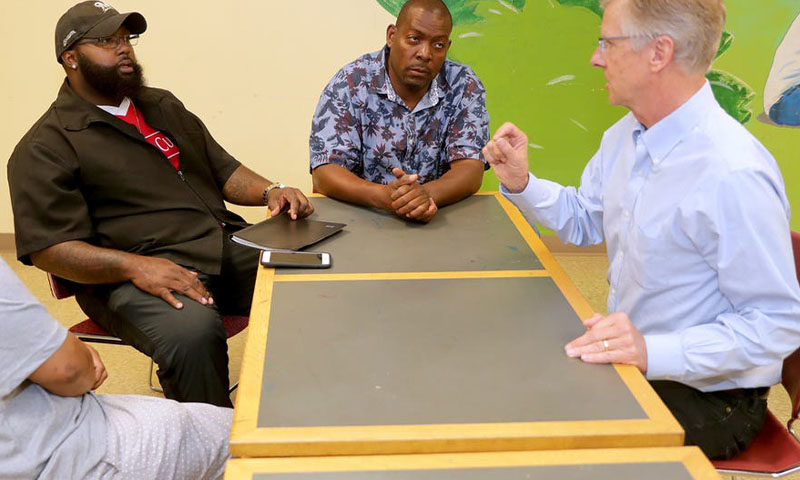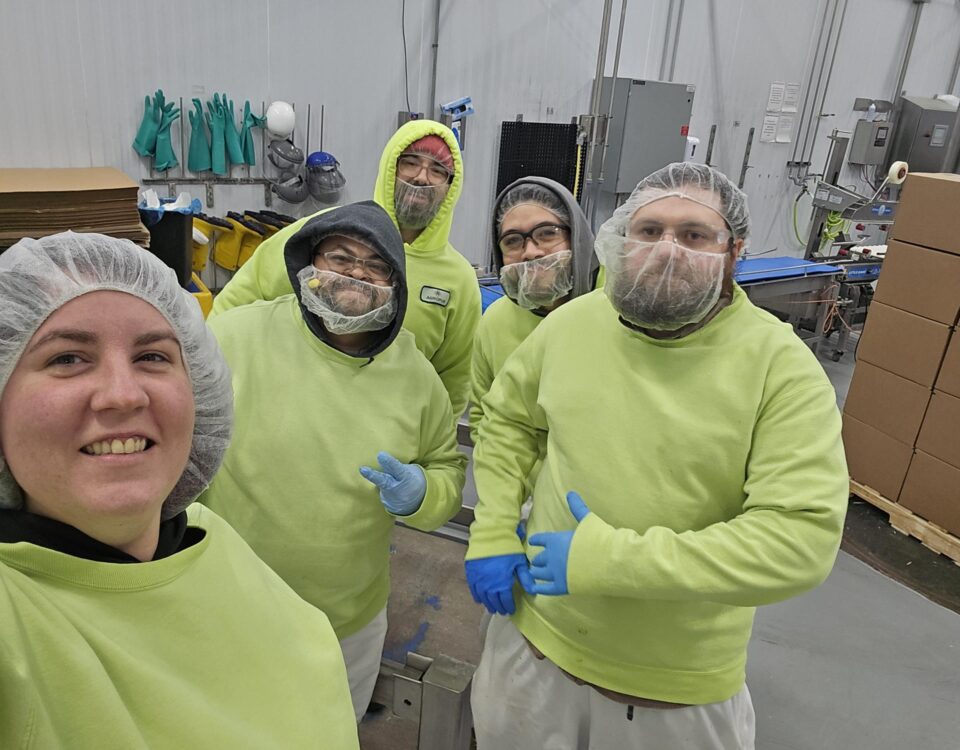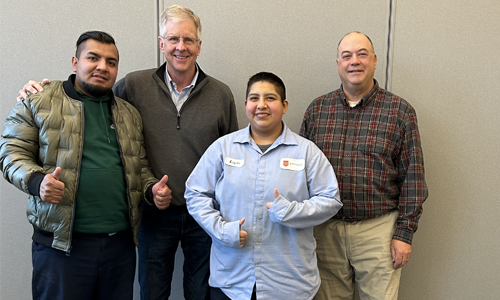
Take Five: Harrigan Solutions thrives with former inmates
February 7, 2019
To Hire and Heal at the Same Time: Wisconsin Employers Pilot New Trauma-Responsive Job Programs
September 19, 2019By: Jim Stingl, Milwaukee Journal Sentinel
While many employers are reluctant to hire ex-offenders, Bill Harrigan actively seeks out potential workers as they leave prison.
He goes out of his way to put felons in jobs and he works with a network of organizations that can help send them to his door.
And not just because it works out well for him and his company, which it usually does, but because it offers hope of a solid future for the former offenders and their families. Making a difference in people’s lives is fun, the energetic Harrigan says. That’s the word he uses.
The 64-year-old Cedarburg man puts them to work at Harrigan Solutions, the Grafton-based company he founded 35 years ago. But he encourages them from the time they first taste freedom to pursue their own personal vision of success.
And when that happens, for instance Elijah Tucker-Carter leaving Harrigan after two years to open his own barbershop in Milwaukee in 2018, Harrigan then has a job opening for another ex-offender.
“I’d like business owners to know that it is possible to work with this misunderstood and long-neglected portion of our population, and that several problems are addressed when we get those that struggle into work that is meaningful to them,” he told me.
“We kind of view this as a ministry. Let’s find them, work with them and return them to the neighborhood better people,” Harrigan said. “God asks us to do two things, love him and our neighbor. This is how we do it.”
By we, he means himself and his business partner, Dave Stern. Harrigan Solutions serves customers from Kenosha to Marinette and sends crews that do maintenance of production equipment for manufacturers, sanitation services at food and beverage plants, plus various tasks on construction sites. It has 35 employees.
Harrigan has hired dozens of ex-offenders, male and female, but has stepped up his efforts in recent years by working with other businesses and more than 75 neighborhood centers, churches, hospitals, schools and other organizations he calls the Abundant Community.

(Photo: Mike De Sisti – Milwaukee Journal Sentinel)
He also is consulting a professor who has developed analytics to show how people will succeed best. He’s taking steps to get to know offenders while they’re still in prison.
And he’s widening his focus to work with children to deal earlier with the trauma they suffer and their education deficits. Harrigan himself overcame a learning disability, which fuels his empathy for those who struggle.
Harrigan established a pen pal relationship with Johnnie Rose, who was nearing the end of 18 years in a Wisconsin prison for robbery. The sentence ended on May 7 this year. In a letter, Harrigan asked Rose, 50, what success looks like to him.
“I now want to explain that success to me looks like happiness, such as being level-minded where one does not play the fool of comparing themselves to others. … Success to me should always look like growth,” Rose replied.
“I took Johnnie out for dinner the day after he got out,” Harrigan said. “And he started with us two days later.”
Rose told me he took advantage of many opportunities for personal improvement while in prison. He finished high school, took college courses, studied culinary arts and cabinet making, and played keyboard and bass in the church choir.
He mentioned many options for jobs down the road — construction, working with machinery, cooking and truck driving. He works nights now, and he’s eager to move to days so he can better help his aging parents in Milwaukee.
“Right now, coming out of prison, I’m trying to just maintain a job, establish my credit and stuff like that, and eventually one day try to own my own business,” he said.
Speaking of Harrigan, Rose said, “If he sees your motivation to do something, he’s willing to work with you. He’s willing to give you a chance. He might give you two chances, you know?”
Tucker-Carter, 23, owns Crisp EE Cutz, a barbershop with several employees at 3271 N. Holton St.
He served time not in prison but at the Milwaukee County Jail and House of Correction for a felony theft case. Any chance he gets, he tells young people not to make the mistakes he made.
A deacon at his church introduced him to Harrigan, who put him to work and then hooked him up with entrepreneurs so he could move on to his dream job.
Taran James, 40, has worked at Harrigan Solutions for a year now. He got out of prison in 2018 after serving 16 years.
“It breaks you down. You hit rock bottom and you have to climb back up,” he said.
Harrigan was there to help with that climb, and he’ll likely be there when James moves on to his dream job, master electrician.
“We’re always trying to get to what really motivates people,” Harrigan said. “It doesn’t motivate people to tell them what you want from them and that’s it. It motivates them when they can see they can achieve what they want and they feel good about themselves when they’re with you.”




